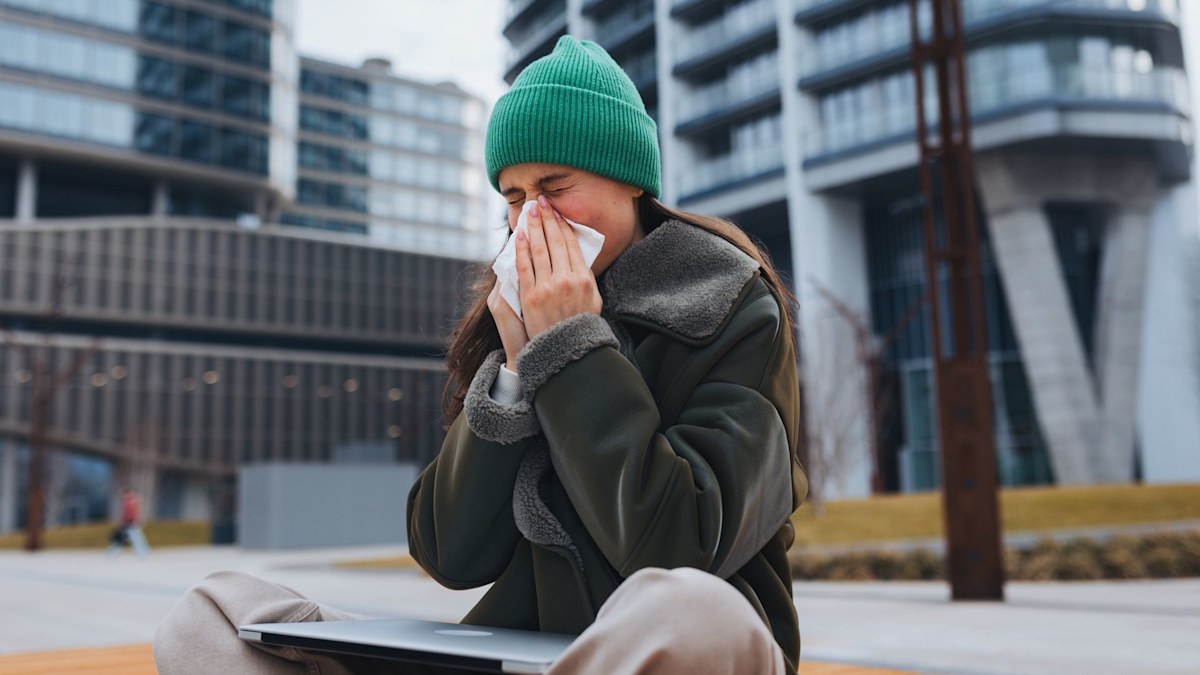In the coming weeks, parents across the country will pack their cars with their teenagers’ belongings and drop them off at their halls of residence as they begin university life. For many, it’ll be the first time their precious teens have moved out of the family home, so naturally, a sense of worry will accompany the feelings of excitement and pride. One reason parents might feel apprehensive is their health. Will they be able to cook for themselves sufficiently? Will they get enough sleep? And will they catch the dreaded ‘freshers flu’?
While there is, of course, little parents can do once they’ve dropped their teens off and left them to their own devices, experts have said there are a number of tips and tricks you can arm them with to make sure they stay in tip top condition (most of the time) and keep on top of their studies (most of the time).
The myth of ‘freshers’ flu’, according to experts
‘Freshers’ flu’ is not exactly a new phenomenon, but according to Supplement Hub, panic has set in this year, which has resulted in a 5,000 per cent spike in the online search term in the UK over the last 30 days alone. However, despite many students undoubtedly falling unwell when they first begin the term of university, thanks to the frequent nights out peppered with alcohol and late nights, experts are urging students not to be led down a path of concern due to scaremongering and misinformation.
Stephen Dowd, Supplement Hub’s Marketing Manager, and experts from their in-house medical practitioner team, caution that while it’s normal to feel nervous about starting uni, online scaremongering can fuel unnecessary anxiety and lead students to believe they’re powerless over their health.
“Social media is flooded with worst-case scenarios, often shared by people who aren’t medical professionals,” Stephen explains. “This kind of content can make students feel overwhelmed before they’ve even arrived on campus. The truth is, freshers’ flu is usually mild, manageable and short-lived – and there are simple, affordable ways to support your immune system as you adjust to student life.”
How to ensure your teen stays fit and healthy at uni
As Stephen said, there are ways to ensure your teen keeps healthy after moving away from home. Many parents will know that with all the will in the world, their teen will still do what they want to (you can lead a horse to water, etc.) however, arming them with these tips is the best bet for making sure they consider their health among the buzz of uni life and their first brush with independence!
Diet
Unless you move into your teen’s halls of residence yourself – which would go down very badly – you’re not going to be able to track your kids’ diet and nutrition. The supplement hub notes that it’s best to stick with the basics, and remember that it doesn’t have to be ‘perfect.’ You’re more likely to get some nutrition into your kids if you lead with realistic encouragement. “You don’t need a perfect diet – just try to make sure it includes fruit, vegetables and protein where you can,” they said.
Sleep
We all know that seven to eight hours is optimal but again, it’s best to be realistic. The supplement hub adds: “Your immune system relies on eight hours of sleep. However, this is easier said than done – and it’s fine for them to enjoy late nights during freshers’ week, but try to encourage them to balance them out with proper rest in between.”
Hydration
The experts also recommend staying on top of hydration as much as possible. Why not treat your teen to a trendy reusable water bottle – the TikTok viral Stanley cups, for example – to encourage them to keep the water flowing, particularly if the alcohol intake increases.
Supplements
As Stephen explains: “You can’t out-supplement three hours of sleep and a Pot Noodle,” but topping up on supplements could be an easy and convenient way for your teen to stay on top of their health. “If we had to recommend just three essentials to help combat freshers’ flu and support your immunity health more generally, we’d suggest: A good multivitamin – a simple and effective way to cover general nutritional gaps for students. One a day is enough.”
They also recommend: “Vitamin D3. During the autumn and winter, you need to get vitamin D from your diet because the sun is not strong enough for the body to make vitamin D. If your diet isn’t as nutrient-packed as it could be, vitamin D supplements are key, especially for those starting university in autumn. We recommend 2000IU per day. We also recommend Zinc, which can support immunity short-term, so it’s great to have on hand, but there’s no need to use it long-term.”
Read the full article here








